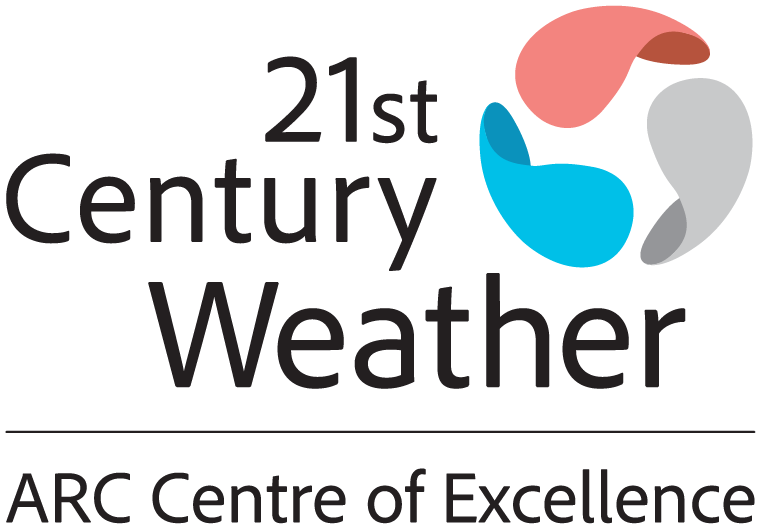
Study With Us
The ARC Centre of Excellence for the Weather of the 21st Century offers an unrivalled environment to undertake postdoctoral research in weather and climate science.
Our comprehensive Researcher Development Program provides breadth and depth of training and development opportunities. The Program provides an individually tailored program of training for all graduate students and early career researchers. We recognise that each of our students and research fellows arrive from a range of backgrounds and possess highly varying skills and knowledge. On entry to our Centre, each student and ECR will undergo a training needs analysis to develop an individualised development plan. This plan will outline their bespoke training pathway, which will focus on three major areas of training: Research Fundamentals, Professional Development, and Industry Engagement. Each Centre student and research fellow will complete activities in all three areas throughout the term of the candidature or employment.
How to become a weather and climate scientist
Are you interested in:
- Atmospheric science?
- Meteorology?
- Climate science?
- Oceanography?
- Earth System Science?
- Climate Risk?
If you want a career in any of these areas here are some tips.
High school
Starting at school, there is simply no substitute for Maths and Physics. In addition, Earth and Environmental Science, Computing, Chemistry and Biology are great choices.
Science, science, science!
To be honest, if you do not like these sorts of subjects you are probably not reading this!
University Study
For a career in climate and weather science you need to go to University and do a degree. Your degree should be rich in the following areas:
- Maths. At least first and probably second year undergraduate study, including calculus, is essential. Many scientists working in these areas hold a Maths degree.
- Physics. At least first and probably second year undergraduate. Many scientists working in these areas hold a Physics degree.
- Computer Science and/or data science. You will need to be able to write computer code, and it helps to be proficient. Our data can reach petascale. Python is increasingly a language of choice.
In studying some areas of science, undergraduates may do enough of these things anyway – a chemistry degree for example, or an engineering degree. Many degrees may already include an appropriate level of maths and physics, for example a Chemistry Engineering degree.
Some Universities offer Environmental Science degrees that also provide a suitable foundation and a good focus on quantitative skills. Many Universities also offer courses, majors or degrees in Meteorology and Climate Science that build on good foundations in Maths and Physics. Specialised degrees in Hydrology may also contain all the necessary skills.
However, it is not uncommon to be able to do some degrees that skip Maths and Physics. That shortcut is not normally good in the long term – if your degree lets you skip Maths and Physics you might want to think about whether it is the right degree for your long-term career.
Further Study
Most people working in the weather and climate sciences have Honours or Masters degrees. These tend to be desired by most employers. If you want to do research in these areas you are likely to want to do a PhD, but that comes much later. Many new areas of employment have emerged in the last few years, particularly in major consultancy companies, insurance and reinsurance companies, and climate risk start-ups.
These companies want a broad range of skills including awareness of environmental sustainability, emissions scenarios, climate impact analysis and so on. These topics tend to be taught in Climate Science degrees, and it is desirable to also have skills in data science, maths, and physics.
Ultimately, working in areas relevant to climate and climate change can be very diverse including Economics, Psychology, Engineering, Urban Design and Planning, Insurance, Banking, Financial Risk, Actuarial, Manufacturing Technology, Business, Medicine, Biotechnology, Media Studies, and so on. If you are studying one of these, perhaps add a little climate science to your degree so that you can help link your chosen field to finding solutions to climate change.
Finally, seek advice. There is no substitute for contacting a researcher in an area you are interested in and asking what they think.

